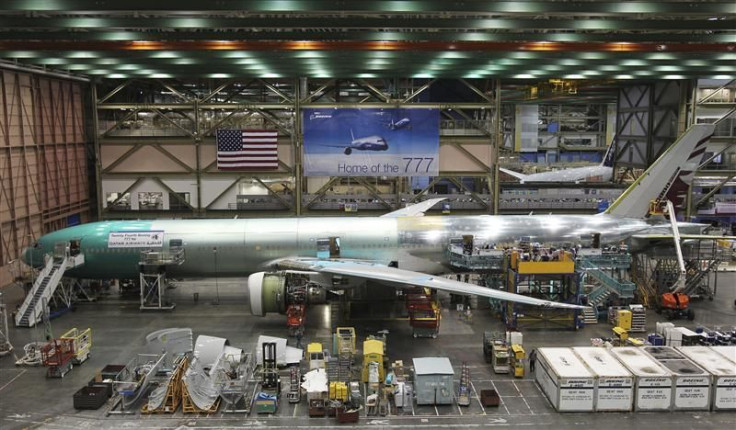Labor Board Drops Boeing Suit After Unions Strike Deal

The National Labor Relations Board on Friday officially ended its controversial lawsuit accusing Boeing of moving a plant in violation of federal labor laws prohibiting retaliation against union members, a lawsuit that drew the national attention and the ire of Republicans.
The NLRB was expected to drop the suit after Local 751 of the International Association of Machinists and Aerospace Workers overwhelmingly approved on Wednesday a four-year contract with Boeing that included a 2 percent annual wage increase, a $5,000 bonus and a commitment to keep manufacturing an aircraft in Washington state's Puget Sound area.
With the deal set, the machinists asked the NLRB to pull the complaint. A regional NLRB director approved the union's request.
This is the outcome we have always preferred, and one that is typical for our agency, NLRB's acting general counsel, Lafe Solomon, said in a statement. We have encouraged the parties to find a mutually-acceptable resolution that protects the rights of workers under federal labor law.
NLRB's April complaint centered on comments Boeing executives made in the press and on conference calls about the need to build a new billion-dollar plant to manufacture 787 Dreamliner jets in South Carolina, a right-to-work state, because of unionized Washington state employees' penchant for striking.
Siding with the union's complaint, Solomon interpreted the comments as retaliation against workers for exercising their right to strike.
The suit caused uproar among Republicans in South Carolina and in Congress. A House oversight committee had sought NLRB documents relating to the case and legislation was introduced to curb the labor board, an independent agency.
The NLRB complaint got the attention of the GOP presidential candidates. Mitt Romney, former Massachusetts governor, in September called the lawsuit the most egregious example of political payback to unions. Texas Gov. Rick Perry had accused the NLRB of trying to dictate where a company can operate.
While the NLRB's suit requested an order forcing Boeing to move its production line out of South Carolina to Washington, Solomon had defended the board's suit as an effort to protect workers' rights.
Boeing had maintained that the NLRB's case was without merit.
Boeing is grateful for the overwhelming support we received from across the country to vigorously contest this complaint and support the legitimate rights of businesses to make business decisions, Boeing spokesman Tim Neal said in a statement.
© Copyright IBTimes 2025. All rights reserved.




















